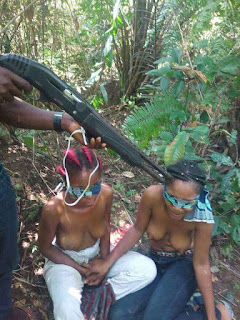Scores killed in Ethiopia protest crackdown
Protests accusing the government of unfairly distributing wealth have also hit the capital [File: Reuters]
Scores of people have been killed across Ethiopia's Oromia and Amhara regions at the weekend, as the authorities brutally suppressed a new wave of anti-government protests in two key regions.
Opposition leader told AFP news agency that up to 50 people were killed, while Amnesty International claimed more than 90 people were killed, many of them extrajudicially, in the protests linked to an aborted government attempt to commandeer local land.
Et
|
"We have reports of between 48 to 50 protesters killed in Oromia. This death toll might be higher because there were a lot of wounded," said Merera Gudina, leader of the opposition Oromo People's Congress.
A diplomat confirmed that 49 people were killed. Among the towns worst hit by the violence were Nekemte, a town in western Ethiopia where 15 people were killed, the diplomat said, while 27 died in Bahir Dar, the capital of the Amhara region.
A diplomat confirmed that 49 people were killed. Among the towns worst hit by the violence were Nekemte, a town in western Ethiopia where 15 people were killed, the diplomat said, while 27 died in Bahir Dar, the capital of the Amhara region.
"They appear to be low level, quite disorganised protests scattered all around...," the diplomat told the AFP news agency on condition of anonymity.
"The brutal response of the government risks provoking more anger and making it worse."
"The brutal response of the government risks provoking more anger and making it worse."
Amnesty International put the death toll at 97, with 67 killed in Oromia and 30 in Amhara on Saturday and Sunday. The rights group said the bloodshed in Bahir Dar may amount to "extrajudicial killings".
"Ethiopian forces have systematically used excessive force in their mistaken attempts to silence dissenting voices," Michelle Kagari, Amnesty International's Deputy Regional Director for East Africa, the Horn and the Great Lakes, said.
Months of protests
Ethiopian authorities had imposed a blanket internet blockade over the weekend.
Oromia saw unrest for several months until early this year, sparked by plans to allocate farmland in the region surrounding the capital for development.
Authorities scrapped the land scheme in January, but protests have flared again over the continued detention of opposition demonstrators.
At the weekend, protesters chanted anti-government slogans and waved dissident flags. Some demanded the release of jailed opposition politicians.
The state-owned Ethiopian News Agency said "illegal protests" staged by "anti-peace forces" had been brought under control, but it did not mention casualties.
Oromia is the second region to be hit by unrest in the past few days. In Amhara region, at least two people were killed in the ancient city of Gonder in clashes over the status of a disputed territory.
The demonstrators accused the government of rights abuses and marginalisation of ethnic communities.
The Oromo are Ethiopia's largest ethnic group, constituting more than 30 percent of the population of 100 million. The Amhara are the second-largest group.
In the capital, Addis Ababa, which is located in Oromia, "many people were beaten," said a witness who did not want to be identified.
In the capital, Addis Ababa, which is located in Oromia, "many people were beaten," said a witness who did not want to be identified.
"I saw others getting arrested. The government was out with guns in town. They're moving with so-called special forces. There was lots of shooting," he told DPA news agency.
Tensions have been rumbling for two decades over the status of Wolkayt district - a stretch of land that protesters from Amhara say was illegally incorporated into the neighbouring Tigray region to the north.
Source: Agencies





Comments
Post a Comment